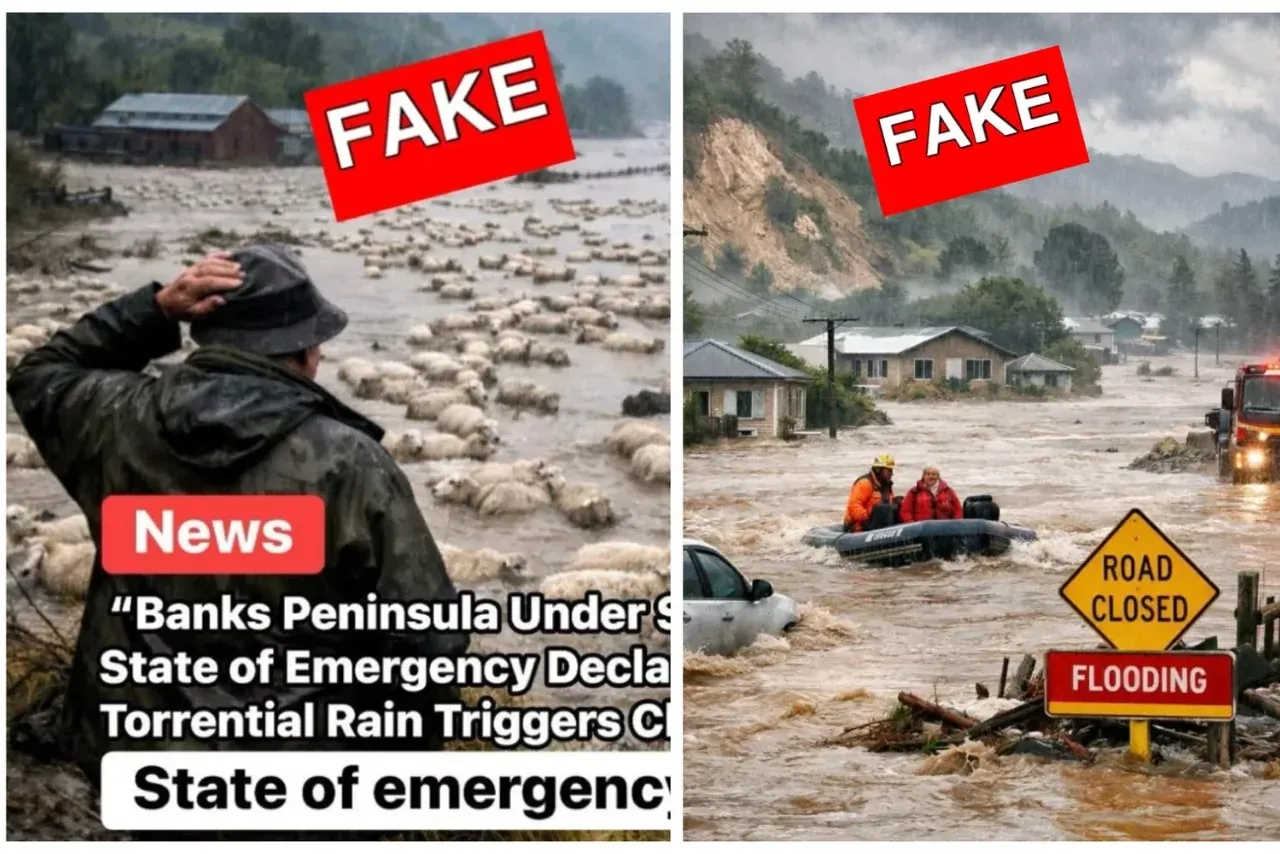Table of Contents
Dr Muriel Newman
The declining fortunes of the mainstream media has been dominating the news over recent weeks. The industry is waning, and the weaker players are facing closure.
While this is grim for those who face job loss and financial uncertainty, there’s not a lot of public sympathy for the media sector these days. And, if we have a quick look back, it’s not hard to see why.
A standout occurrence was the extraordinary emergence of “Jacindamania” in 2017. The fawning across the media landscape was not only unprofessional, it was embarrassing. But instead of dying down once the first blush of the love affair had worn off, it continued on. As a result, the mainstream media neglected their Fourth Estate duty of holding the powerful to account. In their eyes, Prime Minister Ardern could do no wrong, in spite of a growing litany of stuff ups and failure.
In fact, for six years, the mainstream media acted as a cheerleader for Labour – a literal echo chamber for their propaganda. At the same time, they focussed on hunting down and vilifying anyone critical of Labour’s agenda – especially those challenging their approach over Covid and vaccine mandates.
A key factor during that period was taxpayer funding. Under the Ardern administration, the media received well over $100 million.
The last $55 million was the most controversial since it came with substantial political strings attached. Known by the Orwellian name of the Public Interest Journalism Fund, it was announced early in 2021, not long after Jacinda Ardern had won the election and the right to govern alone.
Unbeknown to voters at the time, the PM was planning to roll out Labour’s ‘secret’ He Puapua agenda to transfer democratic power to the iwi elite through co-governance and a Maori veto. This was to be justified through the fabricated claim that Maori were 50:50 Treaty ‘partners’ with the Crown. PIJF recipients were therefore required to sign up to this fiction, as a condition of their funding.
Under such circumstances, it became exceedingly difficult, if not impossible, for the media to criticise the Treaty partnership, co-governance, or He Puapua.
By taking the money, they became advocates for Maori sovereignty. Maori language and culture began to infiltrate news stories, with anything critical of the tribal takeover effectively sidelined. It’s no wonder that public trust in the media fell through the floor.
Even though new PIJF allocations stopped almost a year ago, the funding continues to be rolled out until 2026. Until then, any media outlet adopting a critical approach to ‘Maori issues’ risks being asked to repay the money.
But it wasn’t just over politics and race where blatant bias has driven public and advertiser revenue away from the mainstream media. Obsessive scaremongering over climate change has undoubtedly played a part.
Jacinda Ardern, of course, led the way with her extremist claim that climate change was her generation’s nuclear-free moment.
But the media themselves crossed a line when they decided to stop providing a balanced approach to this highly politicised issue in favour of fearmongering – as Stuff’s Editor explained in 2019:
“Despite the alarming evidence of the need for urgent action, climate change still falls victim to a shrugging complacency. Quick! Save the Planet – a long-term Stuff project launching today – aims to disturb our collective complacency. With insistent, inconvenient coverage, we intend to make the realities of climate change feel tangible – and unignorable…
“We’ll feature a wide range of views as part of this project, but we won’t include climate change ‘scepticism’. Including denialism wouldn’t be ‘balanced’; it’d be a dangerous waste of time. The experts have debunked denialism, so now we’ll move on.”
And with that, they stopped reporting anything critical of their alarmist view that climate change is an existential crisis. With most mainstream media following suit, instead of challenging the radical policy agenda being proposed by the climate extremists in the Labour Government, as a voluntary response to the United Nations’ Paris Agreement, the media parroted their propaganda and discredited anyone questioning their narrative.
As a result, the media failed to hold Jacinda Ardern to account for her recklessness in attempting to lead the world in combatting climate change – by imposing regulations onto New Zealand that were far harsher than those being introduced in other countries.
In fact, some of the requirements of the Zero Carbon Act are so punitive, they are crippling industries and undermining New Zealand’s economic wellbeing and living standards.
Nor did the media point out that on a global scale the emissions produced by New Zealand are infinitesimal – dwarfed in an instant by the big emitters such as China, India, and Russia. Instead of penalising growth, these countries are amongst a raft of others that are expanding their energy sector – and their economy as they seek to improve the lives and living standards of their citizens.
The media didn’t even challenge the Ardern Government for breaching Article 2 of the UN’s Paris Agreement, when they introduced their Zero Carbon Act. That section requires countries not to do anything to threaten food production: “This Agreement… aims to strengthen the global response to the threat of climate change… in a manner that does not threaten food production”.
Yet, Labour’s Zero Carbon Act specifically cracks down on farmers by requiring the methane produced by cows and sheep during digestion to be reduced by 10 per cent less than their 2017 emissions by 2030, and 24 to 47 per cent less by 2050.
This is a huge penalty on farmers, since, in spite of the hundreds of millions of dollars being spent on research to reduce livestock methane, the only realistic way to do so is to reduce livestock numbers.
With agriculture a key export industry, and New Zealand farmers the most efficient in the world, it seems extraordinary that Labour was able to impose massive penalties on them – in breach of the Paris Agreement – with little or no scrutiny by the mainstream media.
In contrast, rather than emulating the punitive approach used by the Ardern Government – that’s undermined the industry and damaged New Zealand’s economic outlook, our major trading partners have taken an incentive-based approach to farming that upholds the spirit of the Paris Agreement.
In April 2023, Treasury released their Climate Economic and Fiscal Assessment report, outlining the cost to the country of Jacinda Ardern’s attempt to lead the world in combatting climate change. It revealed that 70 per cent of our climate targets would need to be met by purchasing carbon credits through offshore mitigation schemes. And they estimated the cost could reach an eye-watering $23.7 billion by 2030 – an amount that would consume “28 per cent of all new operating expenditure through Budgets 2024 to 2030” and create a “significant financial risk” to the country.
Why didn’t the mainstream media hold Labour to account for the massive economic damage their Zero Carbon Act was going to cause New Zealand? Why wasn’t this a big scandal at the time?
In a further development – one that has huge consequences – the UN has now admitted its methane calculations are wrong: Instead of methane causing 28 times more global warming than carbon dioxide, it only causes seven times more warming.
Since almost half of New Zealand’s greenhouse gas emissions are methane, and because our climate models are all calculated using a factor of 28, if the correct value of 7 is applied, New Zealand’s emissions problem would virtually disappear overnight. Expensive carbon levies on food, petrol, and power, could be removed, easing the cost-of-living crisis. But because the mainstream media has failed to report on this, first Labour and now National politicians are dragging their feet.
Furthermore, why hasn’t the media considered it newsworthy to report that a key underlying assumption being promoted by the Ministry for the Environment and adopted by local councils and government departments, that grossly overstates sea level rise, has also been discredited by the UN.
This week’s NZCPR Guest Commentator Barry Brill, the Chairman of the New Zealand Climate Science Coalition and a former National Government Minister, outlines the serious damage being caused by this discredited measure:
“The great majority of the Ministry’s false prophecies are based on a single imagined storyline – RCP8.5 – an obsolete 15-year-old scenario which is now almost-universally recognised as being highly unlikely, if not wholly impossible.
“RCP8.5 rests on assumptions that global emissions are sharply increasing, that no country anywhere has ever or will ever adopt a climate policy, that the world’s population will double and that coal-power will be dominant by 2100. All this is plainly nonsense.
“New Zealand planners and engineers… base their analysis on the ‘worst case’ of 8.5. Consequently, there is a better than 99% chance that their forecasts will turn out to be completely and expensively wrong.”
Last October the public delivered a crushing blow to Labour, sending the message that things must change. But some in the mainstream media appear to be in denial, as they doubling down in a partisan way, undermining the new Government and acting as a de-facto political opposition.
So, what can be done?
For a start, the mainstream media could review its approach to issues like climate change. Instead of adopting the mantra of global warming alarmists, they could take a balanced approach. In fact, a balanced approach may well have prevented the damaging policies that are now in place.
The reality is that by ignoring the need for balance in their reporting, the media is failing to uphold its own industry ideals. These are clearly expressed by the Media Council – a self-regulatory industry body that promotes the highest professional standards of journalism – in its Statement of Principles: “An independent press plays a vital role in a democracy. The proper fulfilment of that role requires a fundamental responsibility to maintain high standards of accuracy, fairness and balance and public faith in those standards.”
Their first principle states, “Publications should be bound at all times by accuracy, fairness and balance, and should not deliberately mislead or misinform readers by commission or omission. In articles of controversy or disagreement, a fair voice must be given to the opposition view”.
These are admirable aspirations. The problem is that there’s now a widespread perception that the mainstream media has failed to uphold their own principles. The public believes that many journalists have become activists instead of reporters – which surely points to a failure at editorial level to rein them in.
This lack of professionalism has eroded confidence in the media and – most importantly – public trust. Without that trust, audiences have shifted their attention to the many alternative sources of information and news that are now available.
Realistically, to survive, the media needs to restore public trust. To keep their traditional media channels alive, they will need to demonstrate professionalism rather than merely claiming it.
Despite the clear message the public has sent to the mainstream media, they are now being called upon to support a campaign to ‘save’ TVNZ programmes and staff. Launched by the journalists’ union E tu, the campaign is being led by ‘Negotiation Specialist’ Michael Wood – the former Labour Party Minister who described the Parliamentary protesters as a “river of filth”.
Their open letter includes the line, “When it comes to building and protecting a strong media landscape, every single New Zealander is a stakeholder.”
But instead of sympathising with the plight of those high-profile presenters fronting the campaign, many New Zealanders will be of a view that the media is now getting an overdue reality check. Some will say the media is getting what it deserves.
Democracy is undoubtedly enhanced by a strong media landscape. But if New Zealand is to return to having that, there needs to be a reset. The media needs to commit to their own principles to “be bound at all times by accuracy, fairness and balance, and… not deliberately mislead or misinform readers by commission or omission.”









